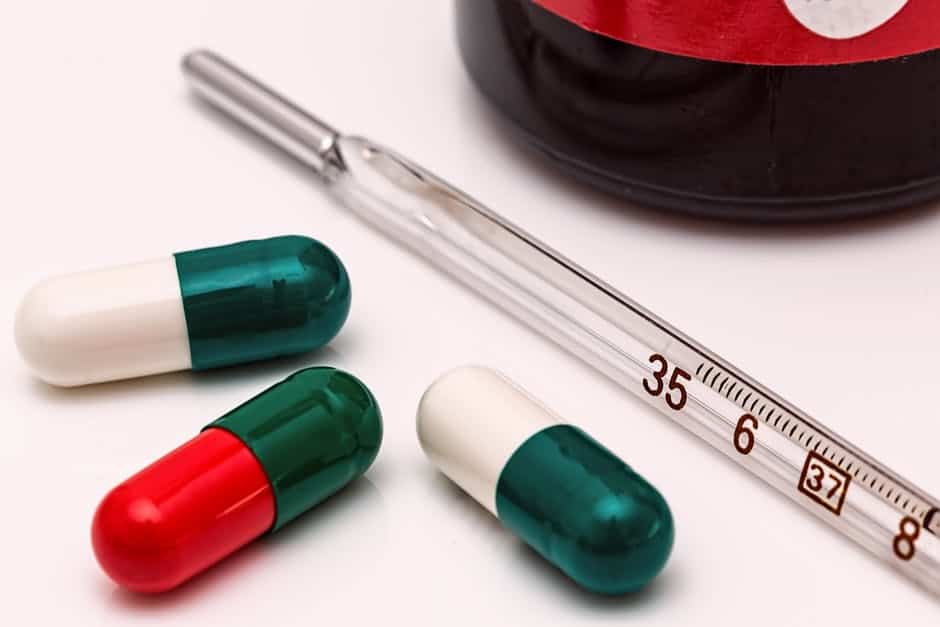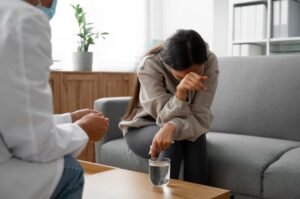Even after realizing that you have an addiction problem and seeking treatment in a rehabilitation center, it’s normal to experience a relapse.
Some people even relapse several times before their final recovery. Let’s look at what triggers relapse before we get into the relapse symptoms.
Causes of Addiction Relapse
Stress
Stress is the most common causes of relapse with many addicts getting back to their addiction as a way to cope with it.
Experiencing stress is normal to every human being, but you can avoid extreme stress triggers by making some adjustments in your lifestyle. There are several adjust your life positively to minimize stress including;
- Proper time management so as to avoid operating under stress mode
- Practicing meditation
- Living healthy through improving your diet and exercising
Hanging Out With Using Friends and On Places with Drugs
Hanging out with your old friends who are still using or in places where drugs are sold increases your chances of relapsing even if they do it indirectly. You can avoid the temptation by changing your friends and hanging joints when you are in recovery.
Family members increase the chances of relapsing if they treat you as if you are vulnerable or like a child.
Getting Overwhelmed by Negative Emotions
Having negative emotions is not wrong, the problem occurs when you don’t know how to deal with them. When you were an addict, you may have indulged in the drugs you are using to help you cope, but not anymore since you are in recovery.
Instead of letting these emotions drag you back into using, seek assistance from a mental health professional.
Indirect Exposure to Your Object of Addiction
During recovery, even the slightest reminder of your addiction such as cigarette smoke can trigger a relapse. Unfortunately, those reminders seem to all over during the first few months of recovery. However, you can easily resist them by practicing relaxation techniques.
Attending Parties
When in celebration mood, it is easy to assume that just one drink, a few minutes of flirtation or just one smoke won’t lead to relapse. But how well can you remain under control?
During your recovery journey, do not have too much faith in your strength to resists the urge abuse. Since you can’t keep off parties, always have someone you trust to accompany you to such events and stop you when you start relapsing.
Stages of Relapse
Relapse is not something that happens overnight, it’s a process. It usually takes a long time before someone finally submits to the triggers and starts abusing again.
It’s also very common for people in recovery to start using again. Statistics show that 40% to 60% of drug addicts suffer from relapse disorders. Relapsing doesn’t mean you are a failure, but neither does it mean you should give up the hope to get clean.
The stages are;
- Emotion
- Mental
- Physical
Emotional Relapse Warning Signs
At this stage, you get vivid memories of the last time you used or relapsed. And even though you aren’t planning to start using, your emotions may be setting your body up for a relapse. Common warning signs of emotional relapse include;
- Isolating yourself
- Having too many emotions
- Missing your recovery meetings
- Attending recovery meeting but failing to share
- Develop poor eating and sleeping habits
- Focusing on other people and their problems
- Failing to follow treatment program
Mental Relapse Symptoms
Dealing with emotional relapse for a long time makes you forget to take good care of yourself. You end up feeling withdrawn and easily irritable. At this point, you are battling the thoughts of whether to use or not.
Common signs of mental relapse include;
- Strong cravings for the substance you are recovering from
- Reminiscing about your past life
- Telling lies
- Bargaining
- Thinking of how to control abusing
- Thinking of how you can relapse
- Looking for possible chances of relapsing
You can avoid falling back at this stage by doing one of the following;
- Talk to someone. It may be your sponsor, a friend or family member. Sharing your carvings with someone gives you clarity on why you have the temptation.
- Don’t act on impulse. Instead, force yourself to wait for like 30 minutes. During this time, evaluate why you want to use so badly and you may calm yourself down.
- Before using, think about the impact it will have on you. All it takes is one more time and before you know it, you are at the rock bottom again.
- Stop overthinking about the future and how you will manage to remain sober. Instead, focus on the current moment and that way you won’t feel too overwhelmed about sobriety.
Physical Relapse Warning Signs
Ignoring the above prevention techniques leads to giving in to your urges. When that happens, you fall into the final stage of relapse which is physical.
However, all hope is not lost as you can choose to continue with recovery even after making just one mistake. Also, relapsing for months doesn’t mean the end of the road to your recovery process.
You can check yourself in one of the treatment centers in California and restart your journey to recovery.
5 Common Relapse Symptoms
Now that you know the stages, what are the most common relapse symptoms and how bad can they get? Here’s a list and how you can plan for them.
1. Doubting the Effectiveness of the System
You may start feeling like the recovery program has a faulty, but you are not sure what it is exactly. As a result, you lack the importance of attending the meetings anymore.
2. Living in Denial
After leaving a recovery center, it is possible to feel stressed living in the ‘real world’. As a result, your body reacts to those situations and you find yourself with exaggerated feelings, whether positive or negative.
The problem, however, is when you start denying the fact that you are stressed. In this case, you keep everything to yourself until the situation gets worse.
3. Being Withdrawn
When stressed, you start experiencing post-acute withdrawal signs of relapse which include memory loss, sleeplessness, anxiety, and depression. It gets worse when you decide to self-medicate yourself with drugs.
4. Change in Behavior
During your journey to sobriety, there is that routine you develop to ensure you don’t fall back to your old ways. When relapsing, you find yourself abandoning those routines and even reject any behavioral evaluation.
5. Poor Judgment
As you start relapsing, you get easily confused and unable to think clearly. As a result, it becomes hard to make any decisions and when you do, you make unhealthy ones. This easily irritates you and you feel always on edge.
Seek Recovery Support from Our Center
If you note that you have any of the above relapse symptoms, you need to check yourself in a place where you are surrounded by supportive people and your loved one.
Our support center offers counseling sessions, hence minimizing the risks of relapsing. Do you feel like relapsing? Reach out to us and we will guide you into embracing the big and bright future ahead of you.
Author
-

President, CEO & Founder at Northbound Treatment Network
Paul Alexander is the CEO, President & Founder of Northbound Treatment Network in Newport Beach, California. He believes wholeheartedly in transformational leadership, organizational health and effective, fully integrated substance use disorder and mental health treatment. With over 27 years of experience in behavioral healthcare, Paul has extensive knowledge of “in vivo” treatment modalities, clinical development, operations, strategy, marketing and financial planning. He has been widely recognized for his development of collegiate-based residential treatment programs for students in recovery and authored a research study at The University of California confirming this modality’s effectiveness.
Paul’s comprehensive professional experience, willingness to innovate, and emphasis on organizational health are vital factors in Northbound’s continued success. Paul received his Certified Addiction Treatment Specialist training at Saddleback College in Mission Viejo, CA, and was awarded Outstanding Alumni Service Award in 2002. Paul holds a Bachelor of Arts degree in Criminology, Law and Society, Summa Cum Laude, from University of California, Irvine, and a Juris Doctorate degree from Loyola Law School of Los Angeles. Paul currently serves on The National Association of Addiction Treatment Providers (NAATP) board. In addition, he serves on The Family Recovery Foundation board and The CarePossible board in Orange County; both organizations are committed to raising funds for family recovery and treatment for former military personnel. Paul is in recovery himself and lives in Orange County with his wife Silvana and his two young sons, Noah and Dean.










